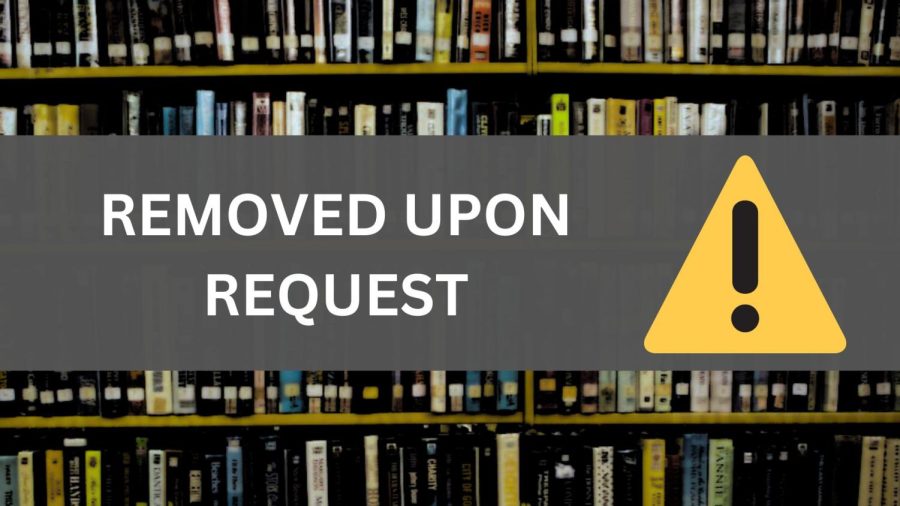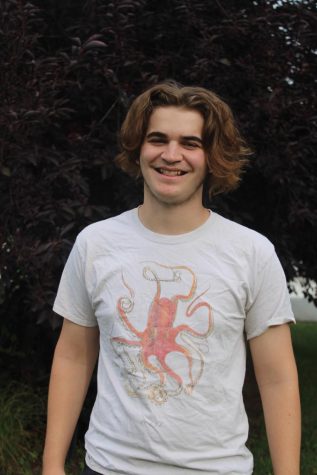Banning books not the only form of censorship
May 10, 2023
You may have heard about books being removed from school libraries, reporters being barred from political meetings, and maybe even about not being able to teach black history in a history class.
All of this is part of a broad subject – censorship. How does it affect us, though? Below is a summary of three instances of censorship currently progressing today, and who is affected.
Copycat bills in Indiana
Governor Ron DeSantis of Florida has pushed his name into the media spotlight in recent months for his emphatic endorsement of the “Don’t Say Gay’’ legislation recently signed into Florida law. This legislation, according to the wording of the bill, “Classroom instruction by school personnel or third parties on sexual orientation or gender identity may not occur in kindergarten through grade 3 or in a manner that is not age-appropriate or developmentally appropriate for students in accordance with state standards” which is simultaneously severe and obscure.
Questions have been raised by various communities representing teachers in the state and nation, specifically, the National Education Association, if, “ all discussion of families and the many different ways families are formed must be avoided altogether in grades K-3”? The intentionally obtuse way the boundaries of this bill are set is purely intentional, as well. If teachers wanting to include material that references the LGBTQIA+ community are threatened with losing their job, as this bill posits, that education may be stricken from the curriculum. Following the wide media coverage and success of the bill, several other states have produced copycat bills. Indiana has its own version going through the state government at the moment, which threatens teachers. The bill concerns itself with making teachers legally required to inform parents of name or pronoun changes they become aware of at school, which activists say could put children’s lives in danger. The coverage of this case varies widely, coming from both reputable and established news sources as well as unchecked, rushed, wildly misleading outlets. AKA:
Misinformation
While it’s not a traditional sort of censorship, misinformation can still serve the same purposes. Flooding the discourse with improperly researched information, or worse, purposely misleading information, can be just as if not more effective than simply killing a story. I’m thinking specifically of the viral “Purge Law” posts that went around on Instagram last October. Officially called the “Safe-T Act,” the law’s goal was to eliminate cash bail in Illinois. Under this system, people unable to pay for their bail would be kept in detainment whereas someone with the means to pay for their bail would be released. According to the U.S. Commission on Civil Rights, the cash bail system disproportionately impacts Black and brown communities and other underrepresented or impoverished groups.
The “Purge” moniker probably originated from WFCN News, a small, conservative news outlet in southern Illinois, and alludes to the movie series that started in 2013. In the series, on one day a year, all crime is legalized by the government of the United States. Their coverage included the false claim that the law would create“non-detainable offenses” which do not exist in Illinois. This fear-mongering is perfect for the kind of impulse opinions that thrive on social media, and the story quickly went viral. The association that this sensationalism created between the “Safe-T” act and the gory horror movie franchise has absolutely steered the trajectory of the bill away from its actual goal and towards the garbage bin.
Censorship in the history curriculum
The purpose of the history curriculum is to expose students to diverse and oftentimes conflicting perspectives. Overwhelmingly, the experiences of people from marginalized identities are suppressed.
In January of 2023, Florida governor Ron DeSantis’ administration blocked a proposed Advanced Placement course on African American studies. The College Board describes the course as “an interdisciplinary course that draws from a variety of fields – history, literature, the arts, geography, science – to explore the vital contributions and experiences of African Americans.” The state’s Department of Education banned the course for lacking “educational value and historical accuracy.”
The ban faced criticism from educators and lawmakers for its apparent attempt to censor African American history. A history curriculum that teaches limited accounts of history harms students and whether intentionally or not, creates inequalities in classrooms. All students should have the opportunity to feel equally represented in the classroom, which has not been the case in Florida.
According to Tampa Bay Times journalist Mary Ellen Klas, “most school districts [in Florida] limit instruction on the topic of African American history to lessons in February [and] Black History Month.” Florida’s decision to ban students’ access to Black history information affects all learners. When access to in-depth historical information is restricted, students are denied knowledge that is useful to think critically about society and its issues. Supplementing information learned in schools with outside resources is a way to combat censor
ed history curricula. For example, students can watch educational videos on the internet or read books on topics and share the information with others.
Who is affected?
These efforts to stifle the free flow of information affect impoverished, marginalized, and minority groups more than youth from affluent families. If a child’s only point of contact with books is through the school library, filtering out so much of its content cripples the child’s ability to expand their horizons. Sharing and understanding the text that challenges our preconceptions is something uniquely human. Limiting this essential aspect strips schools of their intended purpose, and does a severe disservice to youth.
The books that are being taken out of schools overwhelmingly feature the LGBT community, the struggles of marginalized groups in America, and international experiences. How does Florida’s “Don’t say gay” bill applies to a second grader with two dads, is their family ignored? Would a student in that same class with heterosexual parents experience the same sort of erasure? How can we call our democracy healthy when the real lives of our classmates, friends, and family are censored out of public education? Or when the news we see has been filtered through so much bias it doesn’t resemble the actual events?



